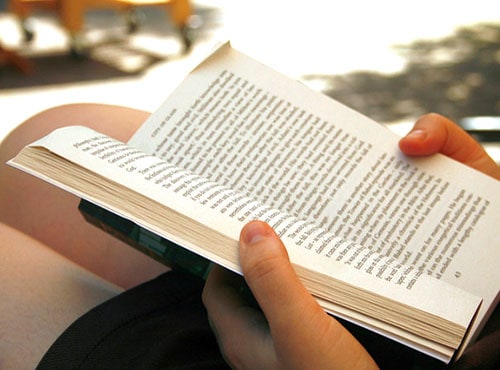
As spring approaches and images of warm breezes, budding trees, and outdoor social activities beckon, the allure of isolated and reclusive hobbies wane. This is especially true for students who spend more than 1,200 hours between August and May focused on learning, and their mentors who spend considerably more time preparing for, planning, and facilitating the learning process. For these individuals, the end of the school year marks the beginning of an 8-10 week “brain break” from all things academia. While some may still choose reading as a summer pastime, others will eagerly forsake it in lieu of other, high-spirited amusement.
Let’s not fool ourselves….setting aside time for recreation is important; and medical experts recommend that kids and adults alike get a minimum of 60 minutes of aerobic, muscle-strengthening, and bone-strengthening activity each day. For students however, increased physical movement and lengthy departures from intellectual activities can take its toll; and for many elementary and middle school students, long recesses from learning can lead to lapses in reading skills. Research shows that routine reading and exposure to print leads to easier phonological processing, increased reading fluency, growth in reading vocabulary, and subsequently better comprehension. While high expectations and calculated efforts by teachers at the beginning of the school year can help remediate the effects of summer deterioration, there are things that can be done prior to and during the summer months to reduce achievement gaps.
Here are some strategies that students, parents and teachers can try:
| Students | Parents | Teachers |
| Make a habit of reading before you get out of bed for the day. Leave a book by your bedside so that it is accessible. It is important to remember that even six minutes each morning will make a difference! | Take your children to visit a new or used bookstore at least once a month over summer vacation; or if appropriate, help them make a plan for getting there independently. | Before school dismisses for the summer help students to identify some books that are closely matched to their abilities and interests. Make certain that all books selected can be read independently and with little difficulty. |
| Create an outdoor space for yourself where you can go to read. Make it special with comfortable seating, a cold, refreshing drink, and shelter from the sun. | Play language-based games with your children such as Scrabble®, Apples to Apples® or Blurt®. If you do not own any games, ask a friend/neighbor to borrow or purchase some inexpensive games from eBay, Craigslist or a thrift store. | Allow students to “check out” books or magazines from your classroom library, or let parents know of some nearby places where they can go to obtain books for their children. Also, provide parents with a list of books that are appropriate. |
| Challenge yourself to read a certain number of minutes for each hour spent on video games or in outdoor activities. Keep a log of your activity each day to hold yourself accountable. | Start a family book club. Choose a book that every member of your family can read. Allow each person to read at his or her own pace, but plan some times for when you can talk about what you have read as a group. | Create a list of free or low cost literacy events that will be held over the summer at community centers, universities or libraries. Encourage your students and their families to investigate these options and choose three events to attend. |
| Swap a book or books with a friend or classmate at the end of the school year and make a plan for reading them over the summer. Be sure to keep them safe and return them when the school year begins in the fall. | Allow your children to purchase a couple of audio books or check out a few books on tape/CD from your local library. Encourage your children to listen to their books daily and read along. | Create a bingo game that encourages your students to read from different genres of books over the summer. Give them a game board that they can use to track their progress and ask them to create a list of their favorite titles to share when school is back in session. |
| Read to a younger brother or sister, or engage a group of neighborhood friends in a reading challenge. When the challenge is complete, reward yourselves with a fun activity. | Set aside time to either read with your children or listen to them read 2-3 times each week. As you read, keep a log of the characters you encounter or the facts that you discover. | Send three post cards to students over the summer to inquire about what they are reading and ask pertinent questions. Provide each student with three self-addressed stamped envelopes that they can use to reply. |
Visit boystownpress.org for great summer reading resources!
